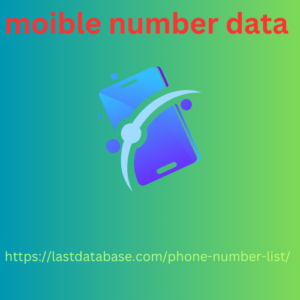|
|
Rather than belittle it or, conversely, idealize it. Chatbots can be a very useful resource for those who want to improve their mental literacy, develop soft skills, or get quick and automated psychological support. But it is important to choose chatbots as well as good experts to be conscious and moderately critical. Formulate the personal tasks you want to tackle with the help of a mental chatbot. Develop emotional intelligence, goal-setting skills, or other soft skills. Get simple psychological support during stressful or unpleasant experiences. Improve the level of mental literacy on a given topic. Define expectations for interacting with the chatbot.
When working with a psychologist, many clients expect him to solve their problems with minimal effort. Similar expectations can moible number data come from chatbots. In this case, you should not expect quick and tangible results. about its developers. What is this organization? What goals has she set for herself? Were mental health professionals involved in the creation and training of the chatbot.

It makes sense to look for publications on chatbots and their effectiveness studies (if they have been implemented) in reputable media outlets. Be careful with any messages you receive from chatbots. A well-trained chatbot based on a language model can manipulate words gracefully without understanding their meaning and subtext. Scenario chatbots written by experts behave less humanly and are limited by the scope of a given algorithm, but provide content created or selected by experts, meaning that the experts make sense.
|
|